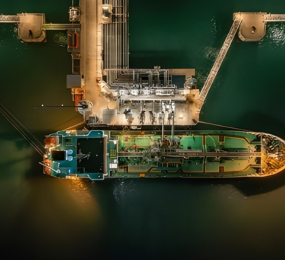World Sustainable Marine Fuels: Navigating Toward a Cleaner Maritime Future
As global demand for cleaner transport intensifies, the maritime industry faces mounting pressure to decarbonize. Traditional marine fuels, while reliable, are also responsible for a significant share of global greenhouse gas emissions. Enter sustainable marine fuels—renewable, lower-emission alternatives that are beginning to reshape the future of ocean transport.
The World Sustainable Marine Fuels movement is not just a response to climate goals. It reflects a broader commitment by shipping stakeholders—from cargo owners to shipbuilders—to reduce the environmental footprint of one of the world’s most critical industries. In ports and boardrooms across the globe, conversations are shifting from “if” to “how fast” these fuels can scale.
What Are Sustainable Marine Fuels?
These fuels include a wide variety of alternatives such as biofuels, green methanol, ammonia, synthetic fuels (e-fuels), and hydrogen. What unites them is their potential to significantly reduce lifecycle emissions compared to conventional heavy fuel oil or marine diesel. Some of these fuels, like green methanol, can even be used with existing engine designs, lowering the barrier to adoption.
Industry Action & Innovation
Momentum is building. Major shipping lines have begun integrating sustainable fuels into their fleets. Ports and bunkering infrastructure are being upgraded to handle alternative fuels, while engine manufacturers continue to innovate propulsion systems that run on low- or zero-carbon options.
At recent industry events, experts emphasized that the energy transition at sea cannot succeed without collaboration. Stakeholders must work together to address technical standards, safety concerns, fuel availability, and cost competitiveness. This means public-private partnerships, consistent regulation, and ongoing investment in R&D.
Challenges on the Horizon
Despite progress, hurdles remain. Production volumes of sustainable marine fuels are still low, and costs remain high relative to fossil-based alternatives. Additionally, global safety regulations, logistics infrastructure, and crew training all need to evolve in step with fuel innovation.
However, with IMO (International Maritime Organization) goals aiming for net-zero emissions from shipping by 2050, the direction is clear—and the timeline is tightening.
Takeaway Point
Sustainable marine fuels are not a distant ideal—they are a practical necessity. As the shipping industry pushes forward, collaboration, innovation, and policy alignment will be essential to scale these solutions globally. Investing in sustainable fuels today means securing a cleaner, more resilient maritime economy for tomorrow.
Learn more on our website: https://www.leadventgrp.com/events/world-sustainable-marine-fuels-forum/details
For more information and group participation, contact us: [email protected] .
Leadvent Group - Industry Leading Events for Business Leaders! www.leadventgrp.com | [email protected]











